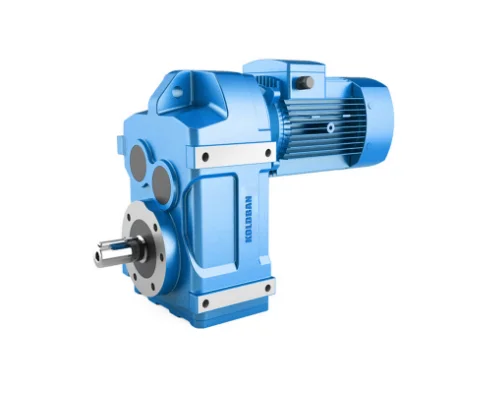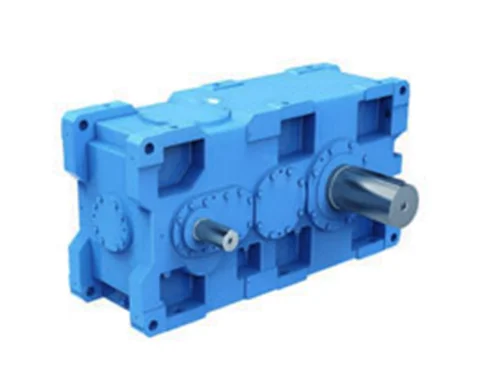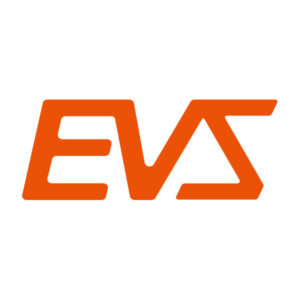For the longevity and effectiveness of various applications, choosing the correct motorgear boxes and gear motors is critical. When designing equipment that requires precise motion control, such as machinery, automotive systems, or gear motors, it is vital to understand the correct procedure for selecting gear boxes and motorgear boxes. To aid the reader in reaching a well-informed conclusion concerning a specific topic, this article will provide an overview of several pivotal considerations.
Awareness of the Definition and Operation of Gear Motors and Motorgear Boxes
Mechanical engineering is dependent on motorgear boxes and gear motors, which are fundamental elements in the conversion of energy into motion. Although they fulfill comparable roles, there can be significant variation in their applications and specifications. Gear motors are small units that combine a motor and a gearbox, designed for efficiency and space savings. Motorgear boxes effectively adjust the speed and torque of motors to suit specific duties.

Characteristics and Diverse
Planetary, worm gear, and helical gear gear types are among the motorgear boxes and gear motors available on the market. Planetary gear motors are often praised for their exceptional efficiency and high torque density. On the other hand, helical gear motors are widely recognized for their uninterrupted functioning and extended longevity, characteristics that render them highly suitable for applications involving high speeds. However, worm gear motors are more suitable for applications that require minimal disturbance and minimal space utilization.
Electricity Requirements: Critical Aspects to Consider
Before selecting the proper gear motor, it is critical to determine the power requirements of the intended application. To reduce the likelihood of untimely gear motor failure resulting from excessive power usage, it is essential to calculate the power necessary to efficiently manage the chosen load.
Torque and Velocity
Recalling the speed-torque curve is an essential element when selecting gear motors. The load-speed relationship depicted in this curve guarantees that the motor is capable of producing the specified torque at the intended velocity and aids in identifying the motor that is most efficient for a particular application.
Optional Dimensions and Mounting
Mounting configurations and physical dimensions are crucial factors to regard. In the given application, the motorgear box or gear motor dimensions must be compatible with the available space. Furthermore, for a seamless integration, the mounting style must correspond with the design of your system.
Composition and Hardness
The durability and longevity of motorgear boxes and gear motors are influenced by the material used in their construction. Equipment can have its lifespan extended by selecting models constructed from premium materials that can withstand harsh conditions.
Output and Efficiency
Savings on Energy
In addition to minimizing environmental impact and operational expenses, selecting energy-efficient gear motors is advantageous. Furthermore than diminishing heat production, energy-efficient models enhance the overall functionality and longevity of the system by decreasing energy consumption.

Dissipation of Noise and Heat
Particularly in settings where noise pollution is a concern or in applications where excessive heat could reduce performance, noise levels and heat dissipation must be taken into account. Beneficial to the working environment and the device’s longevity are gear motors that are engineered to operate quietly and efficiently regulate heat.
The Necessary Maintenance
Varieties of gear motors require distinct maintenance procedures. Choosing alternatives that require little upkeep can result in cost and labor savings, guaranteeing uninterrupted functioning throughout the tenure of the gear motor. When selecting a gear motor, it is critical to take into account the component availability and the simplicity of maintenance.
Factors Regarding Cost and ROI
Short-Term Savings as Opposed to Initial Investment
Although motorgear boxes and gear motors may entail a substantial upfront investment, their decreased maintenance requirements and enhanced energy efficiency constitute substantial long-term savings. Speculative long-term investments can result in significant cost reductions by purchasing gear motors of superior quality.
Overall Ownership Expenses
The comprehensive expense incurred during the acquisition, functioning, upkeep, and elimination of gear motors is referred to as the Total Cost of Ownership. A comprehension of the notion of Total Cost of Ownership (TCO) facilitates the formulation of decisions by guaranteeing that the selected gear motor not only satisfies the requirements of the intended use but also exhibits economic viability over an extended period of time.
Assuring the Quality Certifications of the Supplier or Manufacturer
It is vital to choose vendors who possess reputable quality certifications, such as ISO standards. Acquiring motorgear boxes and gear motors that conform to industry standards is guaranteed by these certifications, which serve as indicators of the supplier’s dedication to excellence and dependability.
Liability and Support
Crucial considerations include the duration of warranties and the accessibility of technical support. Having confidence in a gear motor can be achieved by doing business with suppliers who provide comprehensive support and timely assistance in the event of complications.
Option for Personalization
In order to fulfill the particular demands of a given application, customization options may be crucial. Particularly tailored to meet the requirements of a given application, motorgear boxes and gear motors offered by certain suppliers are customized.
Conclusion
A thorough understanding of your application’s requirements, including power requirements, operational conditions, and cost considerations, is necessary before selecting the appropriate motorgear boxes and gear motors. You can guarantee the choice of gear motors that provide optimal performance, suitability, and value for your requirements by conducting a thorough assessment of these factors. By adhering to a meticulous selection process, one can enhance the longevity and efficiency of equipment while also making long-term contributions to cost savings and operational dependability.
Keep in mind that knowledge is power when choosing gear motors and motorgear boxes. Collect knowledge, seek the counsel of experts, and investigate a variety of alternatives. Moreover to maximizing the return on your investment, making an informed decision guarantees the success of your endeavor.

